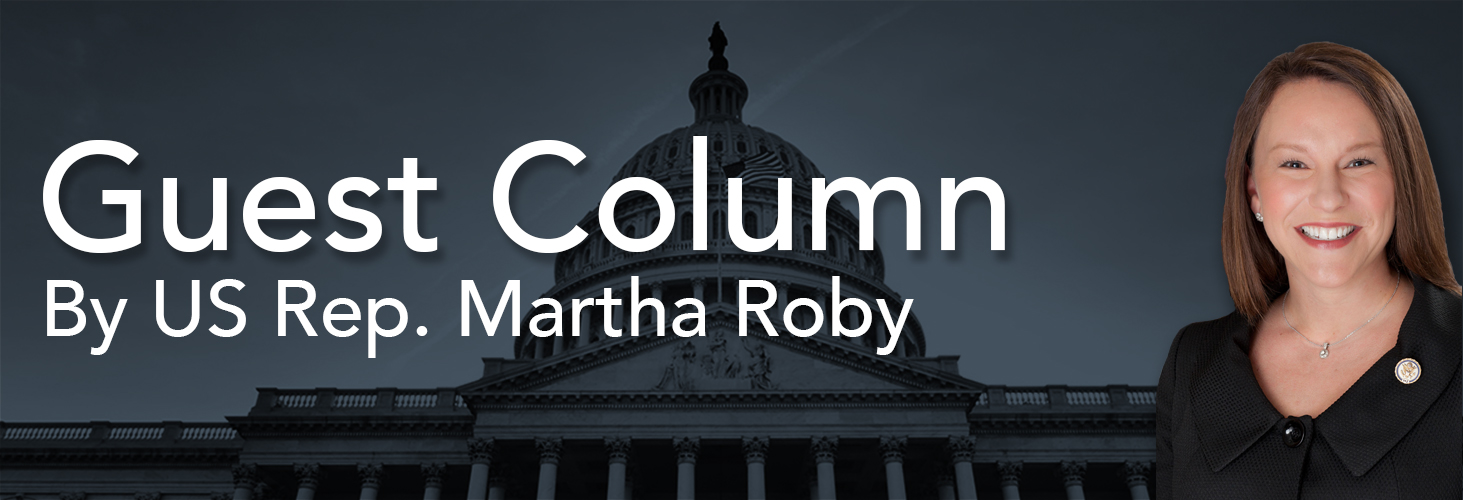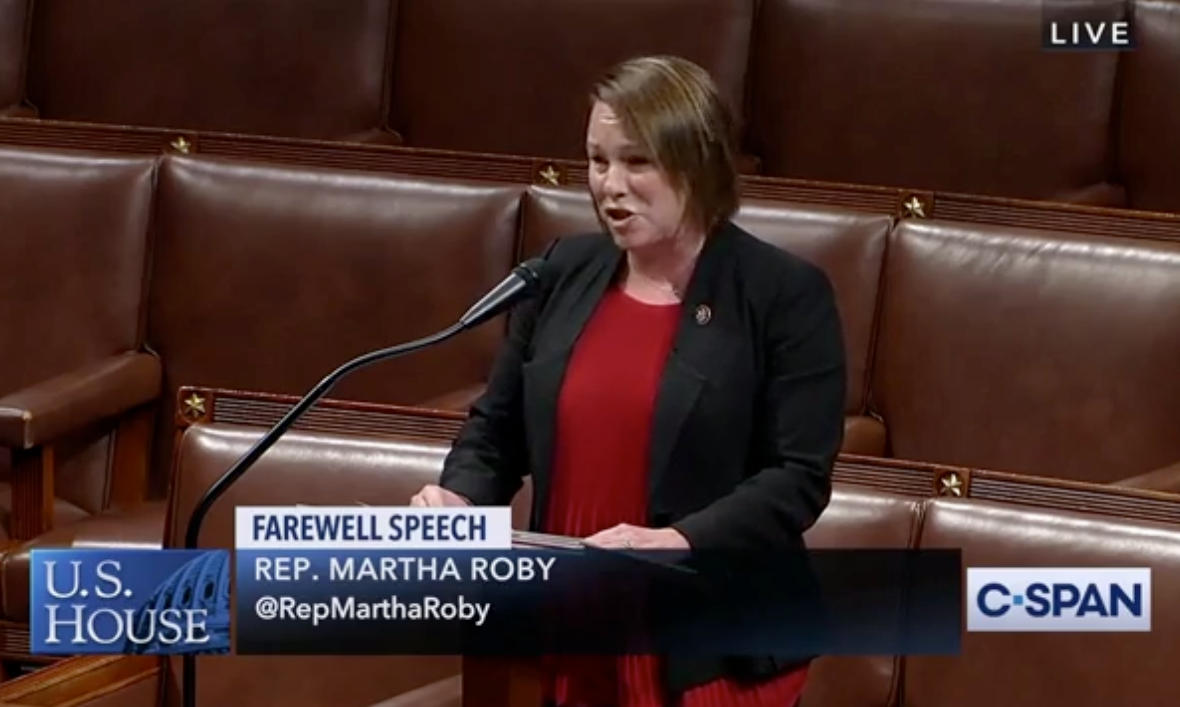By U. S. Representative Martha Roby (R-AL2)
Should a working dad be forced to use up all of his vacation time in order to be involved in his child’s school?
Should a military mom with her husband deployed have to dip into sick leave at work to make sure her kids have the parental support they need?
Should someone with aging parents who require extra care have no option allowing them to devote more time and attention to their parents when they need it most?
The workplace has changed over the years, and so has the worker. We have different demands on our time, so it only makes sense that our laws governing the workplace catch up to the realities of today’s families.
That’s why I introduced the Working Families Flexibility Act of 2013. It allows employers to offer their employees the choice of paid time off, or comp time, in lieu of cash wages for overtime. A working mom or dad could use the “time and a half” overtime he or she earned as actual paid “time and a half” off work instead of cash, if that’s what they’d rather have.
Under this bill, no worker could ever be forced to take paid time off, just like no business owner would be forced to offer it. This bill does not change the 40-hour work week or how overtime pay is calculated. The same protections that have been a part of labor law for decades remain. But, for some workers and businesses, comp time could be a valuable option to include in a benefits package.
A more flexible workplace isn’t a new concept. In fact, many employees in the public sector enjoy this benefit today. That’s because in 1985 Congress passed a law allowing public sector employers – local or state governments, or even federal agencies – to offer their employees the option of comp time.
So, why should the rules be different for employees in the private sector? Why should government workers have more freedom in the workplace than everybody else? And why is the federal government restricting businesses from offering certain benefits that government agencies are free to offer?
Denying private businesses and workers a benefit the government itself enjoys is hypocritical. It is also unfair. For some workers, extra paid time off is actually more valuable than money. And, if that’s the case, why should Washington stand in the way?
We heard from one such worker recently during a subcommittee hearing on this bill: Karen DeLoach, a bookkeeper at a Montgomery, Ala. accounting firm. Like most in her line of work, Karen puts in many hours during the busy season and, therefore, builds up a lot of overtime. Karen recently approached her boss to request swapping her earned overtime pay for comp time so she could go on her church’s mission trip to Nicaragua without interrupting her regular paycheck.
Montgomery is the state capital, and Karen had heard her state employee friends talk about how they swapped overtime pay for comp time in their jobs. She never imagined a similar arrangement at a private business would be against the law. But, that’s what her boss informed her. To his credit, Karen’s boss was willing to offer the flexibility of comp time, but he wasn’t going to break the law.
Karen’s story isn’t unique. Think about the parents of young children; those caring for elderly parents; military families with one of the parents about to deploy. They need more time to be able to take care of personal responsibilities. But, unless they work in the public sector, building up and taking advantage of comp time isn’t an option.
The Working Families Flexibility Act would finally offer working Americans in the private sector what their peers in the public sector already enjoy – more freedom and more control over their time. To be clear, this bill doesn’t add more government regulation in the workplace – we have enough red tape as it is. This bill aims to get Washington out of the way and give employees and employers the freedom to choose what works best for them.
American author and statesman Edward Everett Hale wrote, “I am only one. But still, I am one. I cannot do everything, but still I can do something. And because I cannot do everything, I will not refuse to do the something that I can do.”
There are big issues facing this country. We have more than $16 trillion in national debt. We have a federal spending addiction.
Though we’ve seen some improvement, the economy is still largely stuck in the mud, and businesses are being choked by bureaucratic red tape.
The Working Families Flexibility Act won’t solve the debt crisis, or fix Obamacare or simplify the tax code. I’m proud of our efforts to tackle these big problems in Congress, yet I realize those efforts could be long and drawn out, maybe over a matter of years.
But the fact that we can’t solve the big, overarching problems overnight shouldn’t stop us from doing what we can right now to help make life a little easier for working moms and dads. The Working Families Flexibility Act does that by helping Americans better balance the demands of family and work.




















































